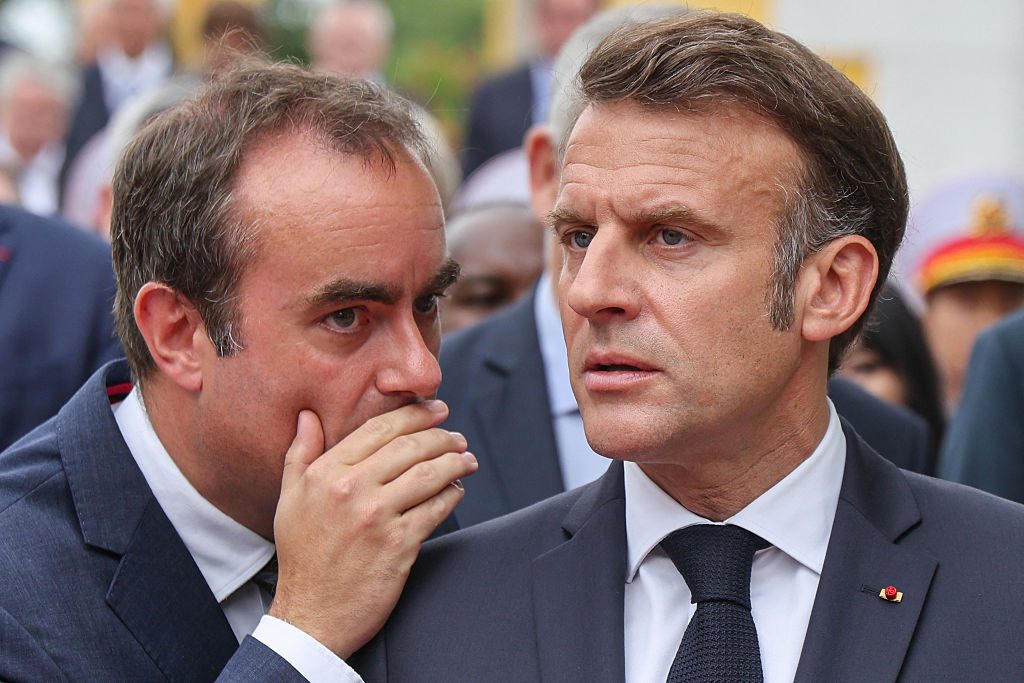The night of 5 October 2025 will be remembered by French politicos for years to come. It was a hectic few hours which ultimately led to the resignation of Prime Minister Sébastien Lecornu less than a month into his time in office. He hadn’t even had time to give his inaugural Discours de politique générale to parliament. The impossible equation that led to the collapse only a few weeks ago of François Bayrou’s government and Michel Barnier’s last December remains unchanged.
In a parliament divided into three nearly equal parts since last year’s snap election, Lecornu was appointed by Emmanuel Macron last month. A rising star of the President’s governments, with a strong track record, especially in the Ministry of Defence, Lecornu also had plenty of local experience and a political charm that allowed him to talk beyond the ranks of his own political family. Personally well-liked by many Socialists, Lecornu even reportedly dined with Marine Le Pen last year.
To break the deadlock, he pledged not to use Article 49.3, France’s executive constitutional hammer which allows the government to pass through legislation without a vote. This was a savvy enough move in the circumstances, but Lecornu still described himself as the “weakest prime minister of the 5th Republic”. Ultimately, the appointment of his cabinet was enough to tip the scales against him.
Lecornu spent the last few weeks working out which political appointments would keep the many components of his centrist to centre-right minority coalition happy. He finally coughed up the names of his incoming government yesterday evening, only very little had changed. Worse still, unpopular former economy minister Bruno Le Maire was back from a short political retirement to become minister of defence.
Last night, the condemnation was swift and universal. Marine Le Pen’s Rassemblement National and the Socialists immediately threatened to topple the government, something that is well within their power. Les Républicains, the conservative party propping up the government, were infuriated that Lecornu kept them in the dark over the composition of the next cabinet, while smaller centrist parties which had been long-term allies to Macron broke with the ruling coalition.
As if things couldn’t get any worse, another former Macron PM, Gabriel Attal, criticised Lecornu by saying: “It’s been a year that we’ve had reasons to be disheartened, but tonight, I have to say, we’ve reached the peak. The petty games, the positions, the posturing. Our country is dying from it, and the French are suffering.” He added: “The French deserve better than the circus of positions and posts.” With many of Macron’s allies having presidential ambitions of their own, none feel obliged to close ranks with a leader who created the current chaos by dissolving parliament a year ago.
Despite his swift fall, Lecornu was on paper arguably the strongest Macronist candidate to meet this impossible situation. If even he cannot get the job done, then something has to give. The obvious scenario would be another snap election, but early elections would wreak havoc in the Macronist coalition. French pollsters do not have the capacity to estimate results at constituency level; but with the collapse in support for centrists, the elections would be a bloodbath. Half of the remaining MPs could lose their seats.
It is still unclear how much Macron cares about breaking a few eggs to make his political omelettes. A new book from journalist Louis Hausalter reports that the French President believed the snap election he triggered last summer would either reinforce his ranks or give Le Pen a majority in parliament. And he was apparently comfortable with the latter scenario, thinking he would rebound in such a unique cohabitation situation.
Yet the risks for Macron are also high. If a new election results in another fractured parliament, he will have used his last tool to break the deadlock before the end of his term in 2027. The only option to avoid elections would be to call for a “technical government” to take over. But even in that very unusual scenario by French standards, such a government would still need to pass a politically toxic budget.
The last solution would be for Macron to resign outright and automatically trigger a new presidential vote. It would certainly break the deadlock, but it remains for now an unlikely scenario, with no president having resigned since Charles de Gaulle in 1969.
In the background of this political merry-go-round, France still has deep economic and fiscal challenges to deal with. It can ill afford to wait two more years to resolve them. And yet the current political chaos is far from having burnt itself out.











Join the discussion
Join like minded readers that support our journalism by becoming a paid subscriber
To join the discussion in the comments, become a paid subscriber.
Join like minded readers that support our journalism, read unlimited articles and enjoy other subscriber-only benefits.
Subscribe